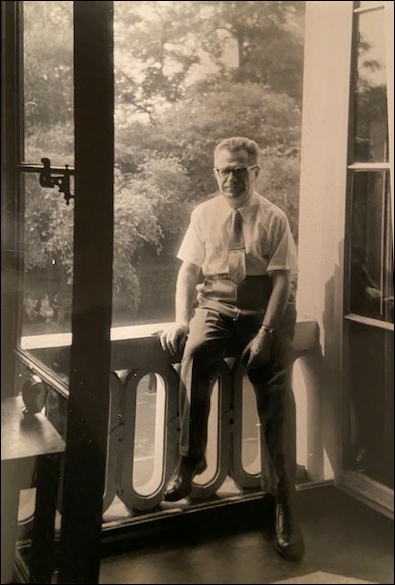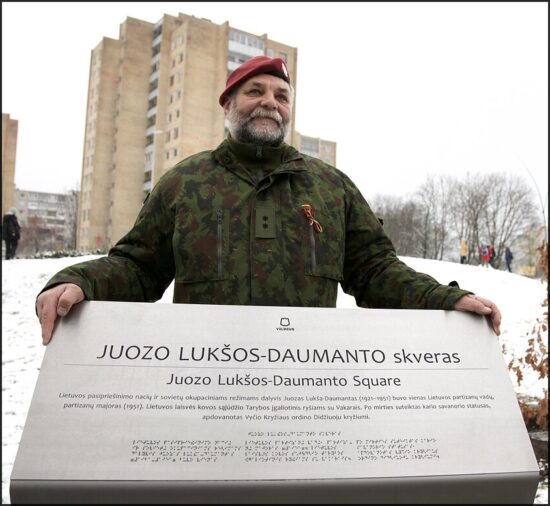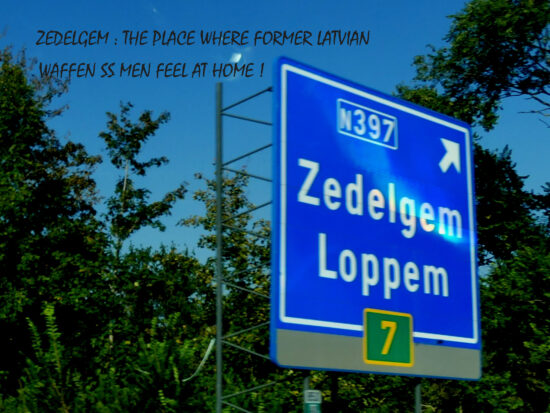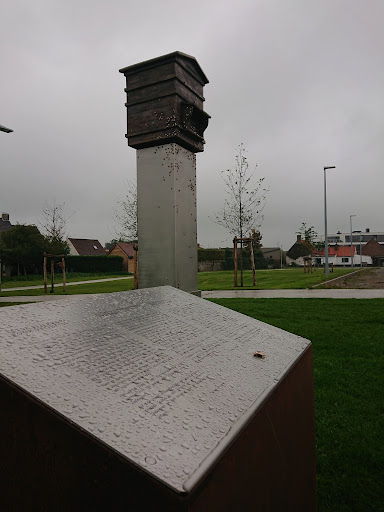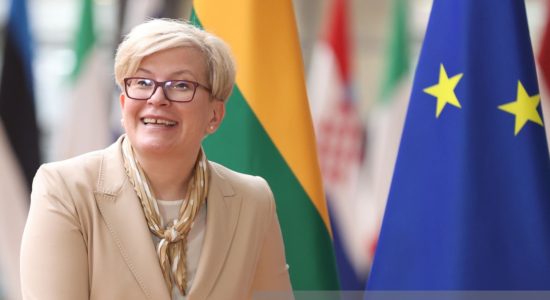Zedelgem, a quiet Flemish town in West Flanders, was occupied by the Nazis between May 1940 and September 1944. During World War I it had also been under German yoke for over four years.
Now, 74 years after the end of the the Second World War, former Latvian Waffen SS men, who wore the same barbarians’ uniform as the occupiers of Zedelgem during the occupation, who fought for the same ideals and were condemned by the same Nuremberg Trials of 1945/1946 as members of a criminal organization, now, more than seven decades after Waffen SS men being freed from an Allied POW camp situated in Zedelgem, these former Latvian SS men and their current far-right, neo-Nazi and Hitler-sympathetic admirers have convinced Flemish officials — many report more than a little impetus to call them morons, plain and simple — in and in the region of modern Zedelgem to enable them to erect a monument to “Liberty” in their memory. A monument to Liberty! The very Liberty they had denied the 100,000 Jews killed in their native country and the dozens of thousands of innocent Soviet citizens of an array of nationalities and religious they killed while fighting in the USSR, near Leningrad and at other fierce, lethal battles. They wore the same barbarians’ uniforms as the Nazi occupiers of Belgium and Zedelgem. They all fought for the Führer to whom they had sworn a common oath of loyalty. They too fought for the same ideals as the Führer.
